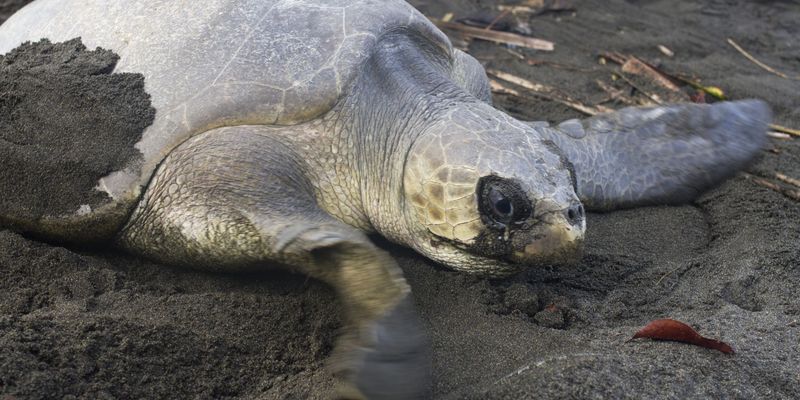Project
Enhancing the capacity of civil societies for creating a unified marine turtle database in CameroonClosed

Cameroon's Atlantic waters host a variety of threatened marine animals, including five species of marine turtles. Despite the international importance of Central African sea turtle populations, status and trends of sea turtles occurring in Cameroon has not been properly assessed to date.
With technical support from the Network of Actors for the Protection of Marine Turtles in Central Africa (RASTOMA), four civil society organizations (CSOs)—including the Cameroonian Association of Marine Biology, KUDU A TUBE, the African Marine Mammal Conservation Organization and TUBE AWU—have been collecting data on marine turtles in a synchronous and homogeneous way. These data already feed the world database of marine turtles and the Marine Turtle Specialist Group reports for the IUCN Red List of Threatened Species.
The goal of this project is to establish a reliable and functional database of marine turtles in Cameroon using national and GBIF standards for the benefit of Cameroonian institutions. The above four CSOs will have the competence to digitize and centralize the data of marine turtles, feeding the national database.
By the end of the project the database will have information on the number of nesting events, marine turtle bycatch, strandings and other observations—also accessible through GBIF. The database will allow for out the first population trend assessment of marine turtles in Cameroon. Results will feed the national strategies for Coastal Biodiversity and Marine Protected Areas Management and influence coastal development policies.
Project progress
From May 2021 to January 2022, RASTOMA has collaborated with stakeholders in marine turtle conservation in Cameroon to compile all data on these animals in the country's beaches and at sea and the following activities have been organized:
A Multi-Stakeholder Workshop organized in Yaoundé involving representatives of the Ministry of Environment, Ministry of Research, Ministry of Forests and Wildlife, academic researchers, five civil society organizations (ACBM, TUBE AWU, KUDU A TUBE, AMMCO, WWF Cameroon), and GBIF representative from Cameroon. The general aims of the workshop were to use existing tools and standards to define:
- Which parameters should be included in the database
- The minimum data standards to feed into the national database and biodiversity strategies
- The terms of sharing and use of the data produced by marine turtles actors by the various stakeholders
- Train the project team on the data mobilization through GBIF
Two major onsite capacity-building sessions were organized to enhance the capacities of the participating CSOs to digitize and publish the marine data.
A data format to feed Cameroon Biodiversity Information System information (CBIS) and GBIF has been established and harmonized with the marine turtle's platform structure. RASTOMA has proposed new fields to the GBIF node to allow the marine turtle's platform to contribute marine turtles data to the Cameroon Biodiversity Information System.
The digitization process has been launched and was ongoing until 11 December 2022. The project worked closely with the Head of GBIF Cameroon Delegation, the node manager, and the Ministry of the Environment. RASTOMA has been registered on the Cameroon IPT to become a data publisher.
